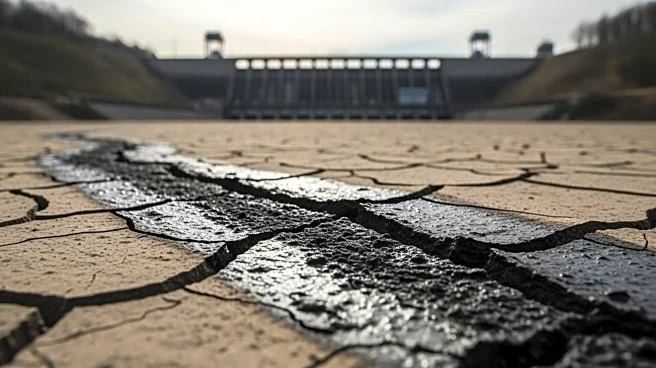What's Happening?
A London judge has ruled that the global mining company BHP Group is liable for Brazil's worst environmental disaster, which occurred when a dam collapsed a decade ago. The collapse released tons of toxic waste into a major river, killing 19 people and
devastating villages downstream. High Court Justice Finola O’Farrell found that BHP's negligence contributed to the disaster, despite the company not owning the dam at the time. BHP owns 50% of Samarco, the Brazilian company operating the mine where the dam ruptured. The disaster affected 600 kilometers of the Doce River, which remains contaminated with heavy metals. Victims of the disaster have hailed the ruling as a historic victory in their pursuit of justice.
Why It's Important?
The ruling against BHP Group is significant as it sets a precedent for holding multinational corporations accountable for environmental disasters, even when they do not directly own the facilities involved. This decision could influence future legal actions against companies involved in similar incidents worldwide. The case highlights the ongoing struggle for environmental justice and the challenges faced by affected communities in seeking reparations. It also underscores the importance of corporate responsibility and the need for stricter regulations to prevent such disasters. The ruling may impact BHP's financial standing, as the company faces potential compensation claims amounting to billions of dollars.
What's Next?
BHP plans to appeal the ruling, which could prolong the legal battle and delay compensation for the victims. The next phase of the trial will determine the damages owed by BHP. Meanwhile, the Brazilian government and advocacy groups continue to push for environmental reforms and stricter regulations to prevent future disasters. The case may also influence international environmental policies, as Brazil hosts the UN COP30 climate summit, emphasizing the need for industry accountability in ecological protection.
















